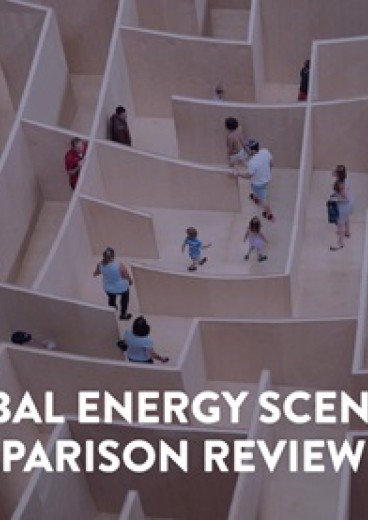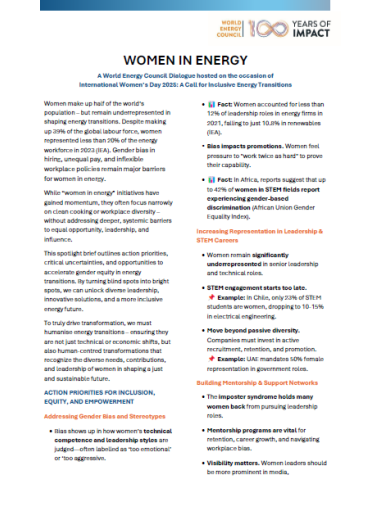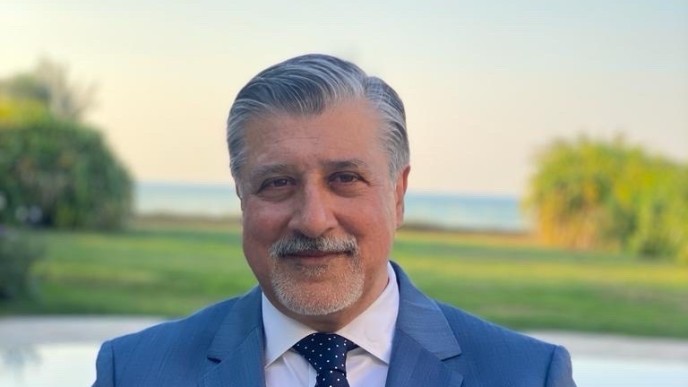Welcome to our Centenary Year!
This article was originally published by Dr Angela Wilkinson, Secretary General & CEO of the World Energy Council, on Linkedin.
As an independent, non-endowed, not-for-profit organisation, we have earned our licence to operate every day, each year for 100 years.
At the core of our enduring mission is the recognition that all living systems – from biological, to socio-technological - evolve through a fundamental shift in their underlying energy systems. Today’s world energy system - a complex, connected and increasingly diverse network of systems - is no longer fit for purpose. And the solutions required involve the connected challenges of accelerating decarbonisation with justice and greening everything.
A sense of déjà vu
The World Energy Council was created 100 years ago in a time of crisis to build modern energy systems that would secure a new era of peace and support widespread wellbeing.
Whilst perspectives differ about how to define an energy system and when and how today’s energy systems will emerge from the turbulence of multiple crises, there has never been greater common support for the idea that energy systems are integral to ensuring peace and wellbeing for future generations.
It is urgent to make faster, fairer and more far-reaching energy transitions happen in all regions and important to enable more clean, reliable and affordable energy services to meet the ultimate goals of sustainable development and planetary health. Accelerating decarbonisation with justice tends to be talked about in terms of technology and finance.
Managing the health of connections in energy for people and planet will involve much more – from understanding the limits of state-centric models of compromise and consensus, to balancing competition with cooperation between coalitions of the willing, experimenting with new ways of collaborating and cocreating energy systems which support billions of better lives on a healthy planet.
An awful lot to do
Last year, at COP28, the world reached an historic agreement to transition away from fossil fuels. A slew of significant energy-centric alliances aimed at getting on with the job were launched, including: Global Energy Transition Alliance; Oil & Gas Decarbonisation Charter; Global Renewables Alliance; Global Utility Alliance; Global Cooling Pledge; Industrial Transition Accelerator; Global Electric Cooking Coalition. (Apologies to the many others I haven’t listed).
The shared ambition is clear: a net zero emissions world energy system by 2050, a monumental and necessary transformation to address global climate change.
Successful implementation depends on extending and strengthening the world energy community in a more fragmented, competitive and conflicted energy leadership landscape. These newly launched alliances will need to learn quickly how to sustain broad collaboration and cocreation, rather than relying on narrow consensus, competition and cooperation, to ensure that the unprecedented scale of energy transitions is achieved.
Accelerating electrification. Tripling up renewables. Doubling down on energy efficiency. Tackling energy poverty. Scaling a new hydrogen-based fuels vector. Extending grids. Enabling more flexible energy storage solutions. There are multiple and diverse technology pathways in transitioning away from fossil fuels and yet the challenges of implementation remain less about technology, and more about investment, policies and people.
Cocreation is imperative, but it is not easy process to sustain over decades and must now be guided by multiple visions of a more ecologically sustainable, socially inclusive and just future.
Making faster, fairer and more far-reaching energy transitions happen is not a simple problem of swapping out old technologies for new. And, as the world learned from Europe, stopping energy supplies without transforming demand is a recipe for new energy security crisis.
Time to step up, stretch and scale together!
There is little realistic hope of success if we can’t learn new and more effective ways to collaborate and cocreate energy systems across silos, sectors and segments of societies – stretching leadership across the defined political borders and fuzzier boundaries that characterize energy systems. We have always existed to help ‘others’ learn and make progress together.
Our 100th anniversary Congress takes place less than 100 working days after the COP28 concluded. In a few short months, from April 22-25, energy leaders and experts from across the world will convene under one roof in Rotterdam to redesign energy systems.
The scope of our recently released programme speaks to the connected challenges in managing clean and inclusive energy transitions, and the opportunities for collaboration, innovation, and progress made possible when you involve more people and diverse communities.
Our pre-COP Pulse showed that the majority (68%) of energy transition leaders we surveyed stressed the necessity for improved cross-domain coordination and action beyond COP to progress energy transitions. Only 11% agreed that a critical mass of participation has been achieved in their respective region and 24% worried about a passive majority holding back energy transitions.
Humanising energy is the key to success. More people and diverse communities need to better understand their role and choices in making energy transitions happen. A new genre of energy transition stories are essential to mobilise more movement and avoid the gridlock of ideological polarisation.
Energy systems include people. There can be no peace without energy. The promise of billions of better lives and a healthy planet now depend on making faster, fairer and more far-reaching energy transitions happen in all regions, and by involving the whole of society.
In 100 days time our visionary leadership and broad stakeholder networks from across the world will take stock of actions since COP28. Under the theme of Redesigning Energy for People and Planet, we are inviting all those who made commitments in Dubai to demonstrate their progress at the 26th World Energy Congress.
A World Energy Congress is more than a conference. It is a key moment in the global energy ecosystem for leaders and experts across all sectors to come together and showcase ground-breaking advancements in making fairer, faster, and more far-reaching energy transitions happen.
I invite you all to join the world energy community at April World Energy Congress in Rotterdam, and help shape the future of energy for all.
Let’s Redesign Energy for People and Planet Together.







